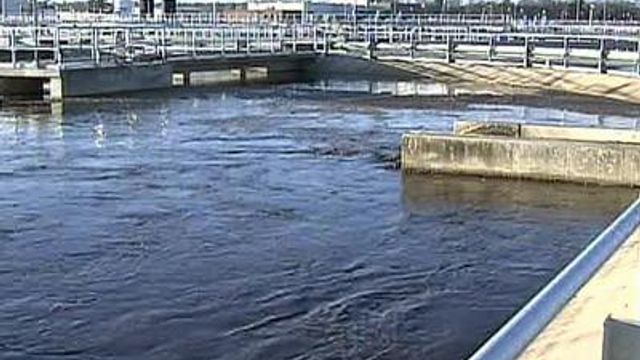Businesses Tap Into Alternate Water Source
Since Stage 2 water restrictions went into effect last Friday, Raleigh's water demand has dropped by about 1 million gallons a day. Despite the restrictions, some businesses have found a way to get water - by tapping into the city's wastewater treatment plant.
Posted — UpdatedYour browser doesn't support HTML5 video.
Since Stage 2 water restrictions went into effect last Friday, Raleigh’s water demand has dropped by about 1 million gallons a day.
The tougher rules banned outdoor watering and pressure-washing and forced car washes not using city-certified water recycling systems to close.
On the other end of the system, however, the Neuse River Wastewater Treatment Plant processes about 36 million gallons of water every day.
"From your showers, from your sinks, from your toilets," said Tim Woody, reuse superintendent with Raleigh Public Utilities Department, as he explained the source of wastewater.
After going through three stages of treatment, the water flows into the Neuse River. These days, though, more and more of the treated waste water is being rerouted for consumer uses.
Businesses like Clean Streets in Angier are filling up tanker trucks with treated wastewater in order to stay afloat during the drought.
"We are thanking God for it right now, because without it, we wouldn't have anything to do," said Gary Adcock with Clean Streets.
Cleaning streets is tough to do when there is a ban on outdoor water us. Clean Streets is one of 150 businesses that the city has certified to use treated wastewater.
While the water is free, the owner said hauling water from the plant is costly and time-consuming. With our most valuable resource dwindling, however, the city says business-owners must get resourceful.
"It preserves our resources. It preserves our drinking water," Woody said.
Anyone can get treated wastewater, as long as you are city-certified and have an inspected tank.
Classes to become certified are free and take about two hours. Officials said they have 150 people scheduled for training this week.
• Credits
Copyright 2024 by Capitol Broadcasting Company. All rights reserved. This material may not be published, broadcast, rewritten or redistributed.
